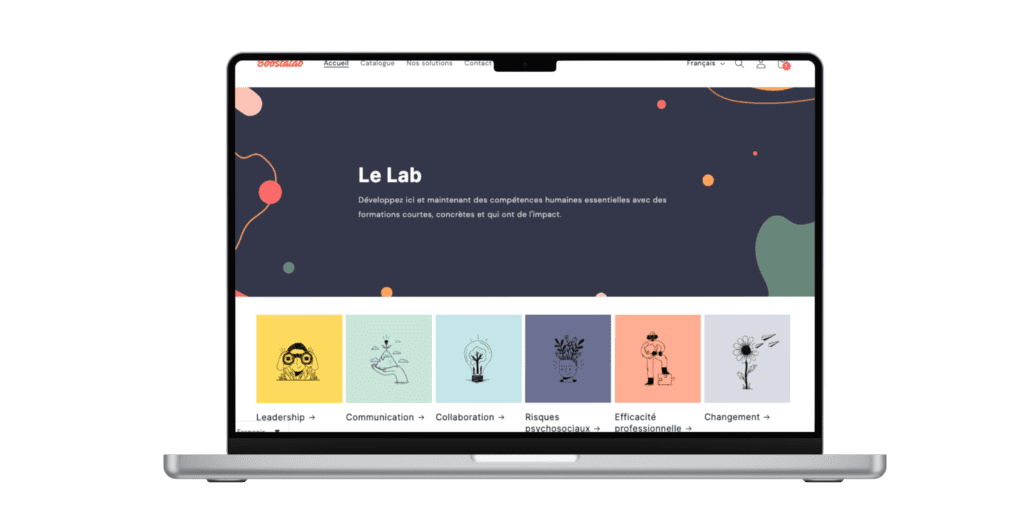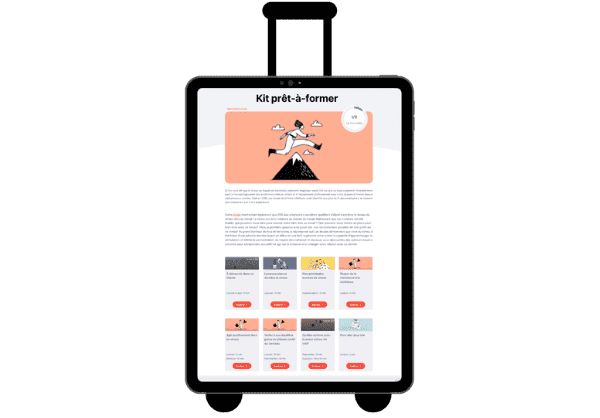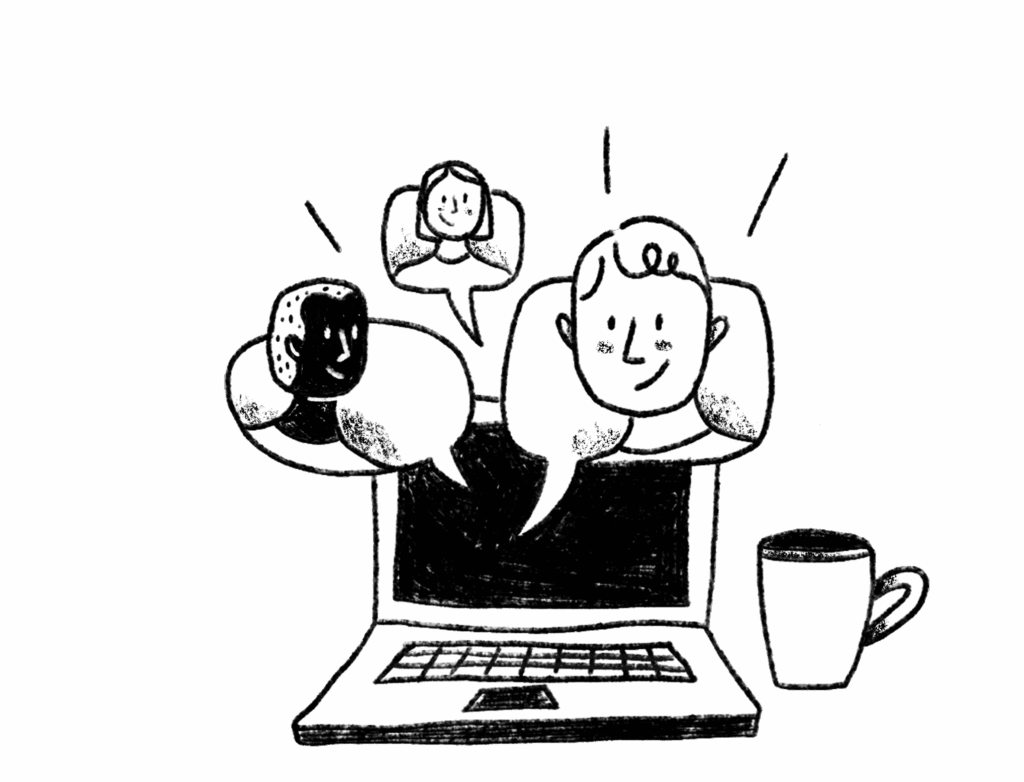Workplace training on managing long-term work leave
Managing extended leave
When a team member takes a long leave of absence, the whole team can feel a bit off balance. It’s a delicate announcement, the impact is felt, and the return can raise questions. But what if you could navigate these moments with more ease, clarity, and humanity?

Why undertake a training on managing extended leave?
In this training, you’ll learn how to manage each phase of a leave of absence—from the initial announcement to the person’s return—with professionalism, empathy, and structure. You’ll discover how to support the person on leave without burning yourself out, how to reassure the team without breaking confidentiality, and how to turn these often delicate situations… into opportunities to strengthen collaboration.
What if these unavoidable moments became levers for trust, team cohesion, and collective well-being?
Expected results

HR managers and professionals are equipped to manage each stage of a leave of absence with professionalism and empathy.

Communication with the team is clear and respectful in order to minimize tensions and encourage collaboration.

Areas of vigilance in managing absences have been identified in order to adopt a more conscious, supportive and consistent stance.
What you need to know about our training on managing extended leave
Why is it important to get trained on managing extended leaves of absence?
Because when someone’s off work for a while, it doesn’t just affect them — it can shift the workload, team dynamics, communication, and sometimes even the workplace culture.
This kind of training helps you:
- Keep a human connection while respecting confidentiality and professional boundaries.
- Maintain team cohesion and motivation while someone’s away.
- Plan for a return to work that’s thoughtful, well-organized, and built to last.
It gives managers and HR teams the tools they need to navigate these situations with empathy, clarity, and confidence.
Because when someone’s off work for a while, it doesn’t just affect them — it can shift the workload, team dynamics, communication, and sometimes even the workplace culture.
This kind of training helps you:
- Keep a human connection while respecting confidentiality and professional boundaries.
- Maintain team cohesion and motivation while someone’s away.
- Plan for a return to work that’s thoughtful, well-organized, and built to last.
It gives managers and HR teams the tools they need to navigate these situations with empathy, clarity, and confidence.
How does this training change the way we handle extended absences?
Let’s face it: managing leaves often happens on the fly — one situation at a time, with no real structure or consistent support. This training shifts that reality by offering a clear, people-first approach:
- It clarifies who’s responsible for what — before, during, and after the absence.
- It provides practical tools for clear communication, managing expectations, and supporting a smooth return.
- And it helps you see extended leaves not as interruptions, but as opportunities to strengthen trust and team culture.
Let’s face it: managing leaves often happens on the fly — one situation at a time, with no real structure or consistent support. This training shifts that reality by offering a clear, people-first approach:
- It clarifies who’s responsible for what — before, during, and after the absence.
- It provides practical tools for clear communication, managing expectations, and supporting a smooth return.
- And it helps you see extended leaves not as interruptions, but as opportunities to strengthen trust and team culture.
What real-life benefits do managers and HR teams see after the training?
Better absence management leads to tangible results:
- Employees come back to work feeling supported — not judged.
- There are fewer misunderstandings or lingering tensions between managers, teams, and the person who was away.
- There’s less stress around workload and uncertainty while someone’s off.
- Team morale improves, and so does psychological well-being across the board.
In short, it’s an investment that pays off in both performance and workplace wellness.
Better absence management leads to tangible results:
- Employees come back to work feeling supported — not judged.
- There are fewer misunderstandings or lingering tensions between managers, teams, and the person who was away.
- There’s less stress around workload and uncertainty while someone’s off.
- Team morale improves, and so does psychological well-being across the board.
In short, it’s an investment that pays off in both performance and workplace wellness.
Is this training only for teams that deal with lots of leaves?
Not at all. In fact, the best time to get ready is before you need it. Even teams with very few leaves benefit from building clear and compassionate practices, because:
- They prevent awkward situations and missteps down the road.
- They help build a culture of trust and support.
- And they show your team that you genuinely care about their health and quality of life at work.
Bottom line? This kind of training is a smart move for any people-focused HR strategy.
Not at all. In fact, the best time to get ready is before you need it. Even teams with very few leaves benefit from building clear and compassionate practices, because:
- They prevent awkward situations and missteps down the road.
- They help build a culture of trust and support.
- And they show your team that you genuinely care about their health and quality of life at work.
Bottom line? This kind of training is a smart move for any people-focused HR strategy.
What does a people-first approach to leave management really mean?
It means putting the person — and the team — at the centre of the process. This approach is built on three key principles:
- Listen and understand: approach the situation with empathy and a supportive mindset.
- Communicate openly: stay connected with the team, while respecting privacy.
- Support the return: make space for people to find their footing again — at their own pace.
This mindset helps create a workplace where people feel safe, respected, and supported — all essential ingredients for a healthy, high-performing team.
It means putting the person — and the team — at the centre of the process. This approach is built on three key principles:
- Listen and understand: approach the situation with empathy and a supportive mindset.
- Communicate openly: stay connected with the team, while respecting privacy.
- Support the return: make space for people to find their footing again — at their own pace.
This mindset helps create a workplace where people feel safe, respected, and supported — all essential ingredients for a healthy, high-performing team.
What different formats does Boostalab offer to learn how to best manage extended leaves?
We offer a variety of formats to meet your organization’s needs:
✔ Le Lab: an online learning platform you can access anytime, designed to help integrate best practices gradually, either individually or through a corporate subscription.
✔ Ready-to-train kit: practical, engaging, and easy-to-use training content that can be integrated directly into your organization’s LMS.
We offer a variety of formats to meet your organization’s needs:
✔ Le Lab: an online learning platform you can access anytime, designed to help integrate best practices gradually, either individually or through a corporate subscription.
✔ Ready-to-train kit: practical, engaging, and easy-to-use training content that can be integrated directly into your organization’s LMS.
How do I start training with Boostalab?
You have two options:
Want to find out which training format is best for you? → Take the quiz!
Prefer to discuss it with an expert? → Book a meeting with us.
You have two options:
Want to find out which training format is best for you? → Take the quiz!
Prefer to discuss it with an expert? → Book a meeting with us.

Get the right tools to manage extended leave – before, during and after
Learn how to welcome the announcement of a leave of absence with professionalism and empathy, how to announce it to the team in the right way, how to prepare for a smooth return and how to support the employee on their return to work.
Success stories
Sometimes daring to do things differently takes us further than we ever imagined. Do like they did.
We cannot overlook their determination, remarkable availability, and unparalleled expertise in providing services to our members, particularly in developing tools and training related to psychological health in the workplace.
It is an exceptional privilege to collaborate with a Quebec-based organization that quickly understood our challenges, identified concrete solutions, and created diverse content that is recognized and appreciated by all our members.
Furthermore, we commend the team’s dedication to maintaining this valuable connection with us and, by extension, with our members. We are proud to count the “Boosta” team as part of the cherished family of CCAQ partners.
Céline Servant
VP of Human Resources - CCAQ
Teams that have been transformed
Learn how our solutions have helped many teams take action and develop their skills.





